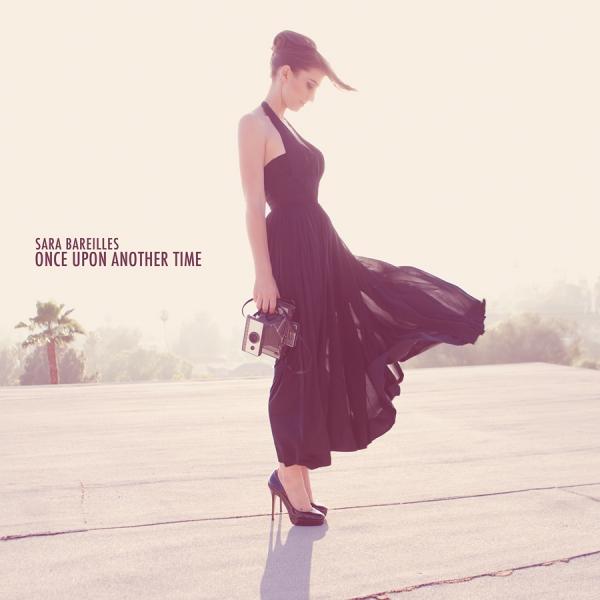Videos by American Songwriter
On May 22, Sara Bareilles will release her EP Once Upon Another Time, produced by her friend and fellow The Sing-Off judge Ben Folds. We spoke with the songstress about her newest creative collaboration, and what sets this EP apart. Check out the EP track “Stay” here.
Do you consider “once upon another time” to be a theme throughout the EP?
I wouldn’t say this EP has a very concrete thread running through it. It’s really about picking a collection of songs that I loved. But the title track is really about loss of your childhood and letting go of your past, and that’s a part of my life right now, a journey I feel like I’m on. It felt befitting to name the album that.
Ben Folds produced this EP, and you’ve toured together and co-judged the music competition show The Sing-Off. What was it like to work with him in the studio?
Well, we did it all in Nashville at Ben’s studio. We had The Collective come in, which was contestants on The Sing-Off. They came in to sing on “Stay,” and it was a really fun, great way for me to explore. We had an awesome time in the studio, and Ben’s amazing. He’s been one of my musical heroes as long as I can remember, and I feel so lucky I got the chance to work with him in this capacity. He’s really special, and so punk rock in the best way. He doesn’t have filters in the same way that I think some people do, and it makes him a really brave and generous musician and performer. Ben’s always willing to be vulnerable and lay it out on the table, and I really look up to him for that.
How do you think his production influenced how the EP turned out?
I spent less time worrying about the nitty gritty of the recording. I tend to get bogged down with the details and getting the perfect performance, but Ben is much more focused on capturing a great performance with character.
And he was really encouraging and unabashed about me taking risks. There’s one song, “Bright Lights and Cityscapes,” that was a very emotional performance. When I listen back to that vocal take, I don’t hear my best singing and I get self-conscious about that. But Ben was adamant about getting a take that had a lot of emotion, and he was right: I was sitting in the piano room crying while singing, and he’s the one who made me keep that on the record.
Why’d you choose to release an EP instead of an album?
I knew I wanted to take some time off between my records and I wanted my fans to have some new music to tie them over. An EP is especially great because there’s less pressure than with a record, so it’s a good place to explore and play creatively without feeling like it will define my next career move.
You certainly seem to get creative on the track “Lie To Me.” It’s a bit darker and more heavily produced than some might expect from you. Do you think that’s Ben Folds’ influence or your own creative exploration coming through?
“Lie To Me” was actually mostly crafted at home with garage band loops that I put together, and Ben added that incredible string arrangement. I love that song. I’m really proud of it. It felt like it was very different for me and sort of darker than my other records have sounded, but I feel ready to share more shades of my color.
I actually write kind of mean lyrics, but usually wrapped up in a sunny song. For a while I was having fun with that juxtaposition, but “Lie To Me” is a bit more direct. It sounds like what it means. It’s experimentation, finding new ways to express what I was trying to say. I’m excited to have people see different sides of my musical personality, so that one was fun.
Is your writing inspired by personal experiences?
I’m a very autobiographical writer, so when people upset me or piss me off, they’re going to end up in a song somewhere. But I definitely—I don’t want to say exaggerate, because that makes it sound like it’s not true—but you can extrapolate a lot from a small incident. No one betrayed me to the depths of my being. That’s not where that song came from. But I think if you take a particular incident that’s highly emotionally charged, you can draw it out into something that’s even bigger than it is through a song. I think it’s an effective way to write.














Leave a Reply
Only members can comment. Become a member. Already a member? Log in.